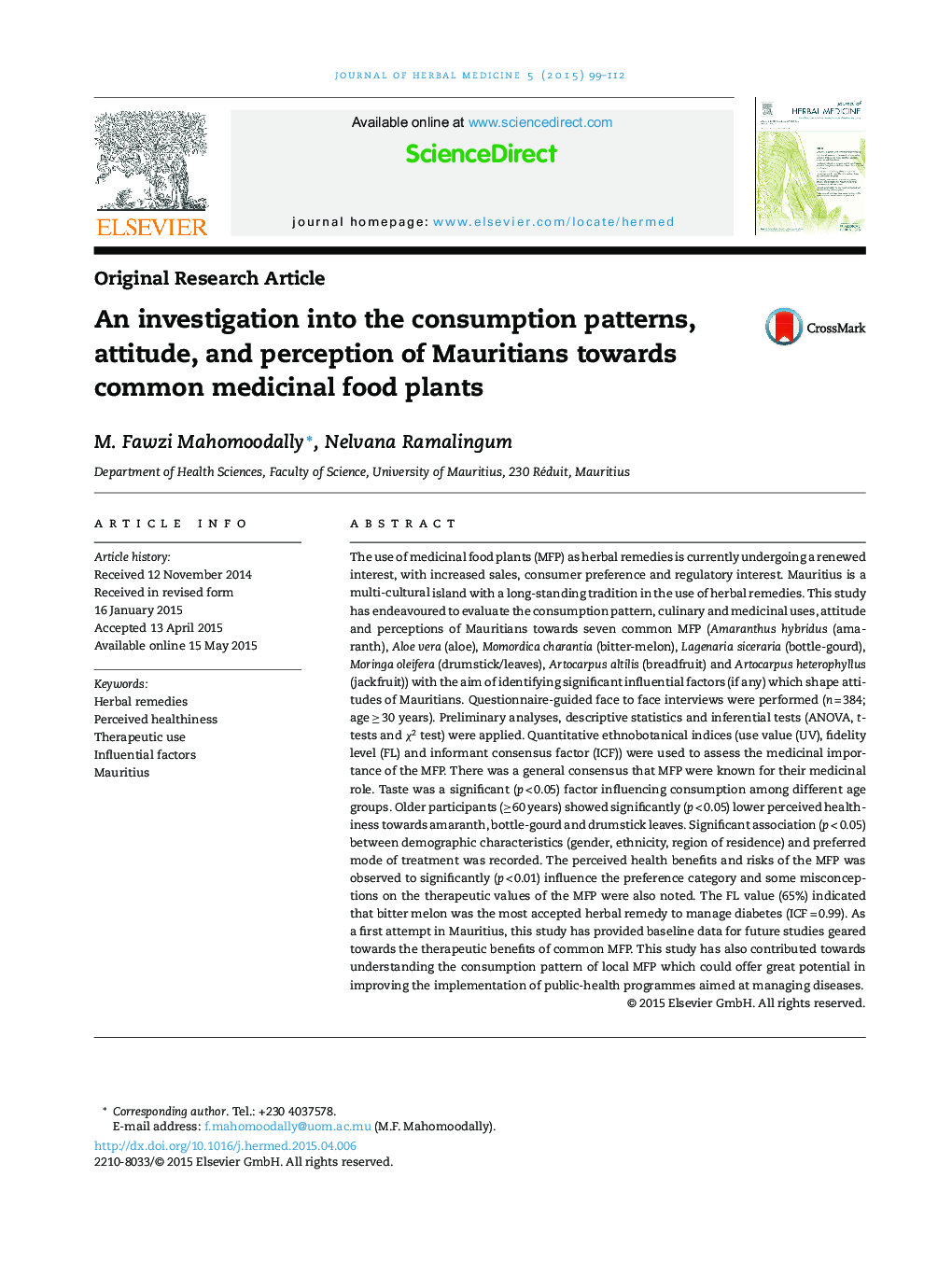| Article ID | Journal | Published Year | Pages | File Type |
|---|---|---|---|---|
| 2484103 | Journal of Herbal Medicine | 2015 | 14 Pages |
The use of medicinal food plants (MFP) as herbal remedies is currently undergoing a renewed interest, with increased sales, consumer preference and regulatory interest. Mauritius is a multi-cultural island with a long-standing tradition in the use of herbal remedies. This study has endeavoured to evaluate the consumption pattern, culinary and medicinal uses, attitude and perceptions of Mauritians towards seven common MFP (Amaranthus hybridus (amaranth), Aloe vera (aloe), Momordica charantia (bitter-melon), Lagenaria siceraria (bottle-gourd), Moringa oleifera (drumstick/leaves), Artocarpus altilis (breadfruit) and Artocarpus heterophyllus (jackfruit)) with the aim of identifying significant influential factors (if any) which shape attitudes of Mauritians. Questionnaire-guided face to face interviews were performed (n = 384; age ≥ 30 years). Preliminary analyses, descriptive statistics and inferential tests (ANOVA, t-tests and χ2 test) were applied. Quantitative ethnobotanical indices (use value (UV), fidelity level (FL) and informant consensus factor (ICF)) were used to assess the medicinal importance of the MFP. There was a general consensus that MFP were known for their medicinal role. Taste was a significant (p < 0.05) factor influencing consumption among different age groups. Older participants (≥60 years) showed significantly (p < 0.05) lower perceived healthiness towards amaranth, bottle-gourd and drumstick leaves. Significant association (p < 0.05) between demographic characteristics (gender, ethnicity, region of residence) and preferred mode of treatment was recorded. The perceived health benefits and risks of the MFP was observed to significantly (p < 0.01) influence the preference category and some misconceptions on the therapeutic values of the MFP were also noted. The FL value (65%) indicated that bitter melon was the most accepted herbal remedy to manage diabetes (ICF = 0.99). As a first attempt in Mauritius, this study has provided baseline data for future studies geared towards the therapeutic benefits of common MFP. This study has also contributed towards understanding the consumption pattern of local MFP which could offer great potential in improving the implementation of public-health programmes aimed at managing diseases.
